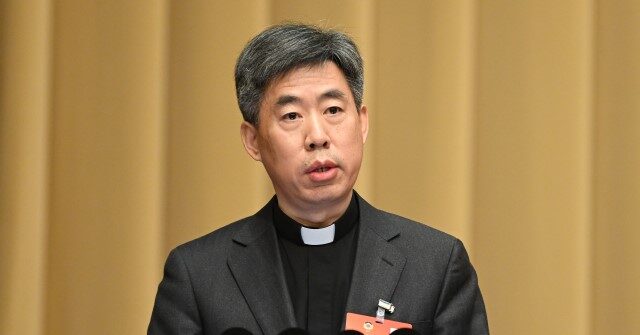ROME — The Chinese Communist Party (CCP) has once again violated its 2018 agreement with the Vatican, unilaterally naming a new bishop of Shanghai without the Vatican’s okay.
On Tuesday, Bishop Shen Bin was officially installed as the new bishop of Shanghai. Shen was appointed by the CCP-controlled Council of Chinese Bishops, an organization of which Shen himself is the head, and which is not recognized by the Holy See.
At his installation ceremony, Shen said he will continue the tradition of “patriotism and love” for the Church in Shanghai, pledging to adhere to the CCP’s principles of independence and self-administration and the campaign of “Sinicizing” Catholicism in China.
Vatican sources revealed that Shen’s appointment was “unilateral” — made without papal approval. While the exact details of the 2018 Sino-Vatican accord on the naming of bishops have not been made public, both parties are supposed to agree on any candidate for bishop before he can be appointed.
Bishop Shen is reportedly not liked in Shanghai and has been accused of demanding large cash donations when ordaining priests in the diocese.
The former bishop of Shanghai, Bishop Ma Daqin — who was Vatican-approved — is currently under house arrest in Sheshan Seminary in punishment for his resignation from the state-run Chinese Catholic Patriotic Association, a move he announced during his episcopal ordination ceremony in 2012.
Last November, the Holy See issued an unprecedented statement in which it expressed its “surprise and regret” over Beijing’s unilateral decision to demote Yujiang Bishop John Peng Weizhao, making him “Auxiliary Bishop of Jiangxi.”
The reassignment of Bishop Peng was accompanied by the creation of the diocese of Jiangxi, “a diocese not recognized by the Holy See,” the Vatican noted in its communiqué.
Bishop Peng is a member of the underground Catholic Church faithful to Rome and was appointed by Pope Francis in 2014 and secretly ordained as bishop of Yujiang, for which he was held under house arrest for six months.
The Vatican message said that the relocation of Bishop Peng did not take place “in accordance with the spirit of dialogue” existing between the Vatican and the Chinese Communist Party.


